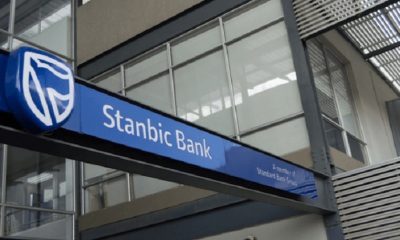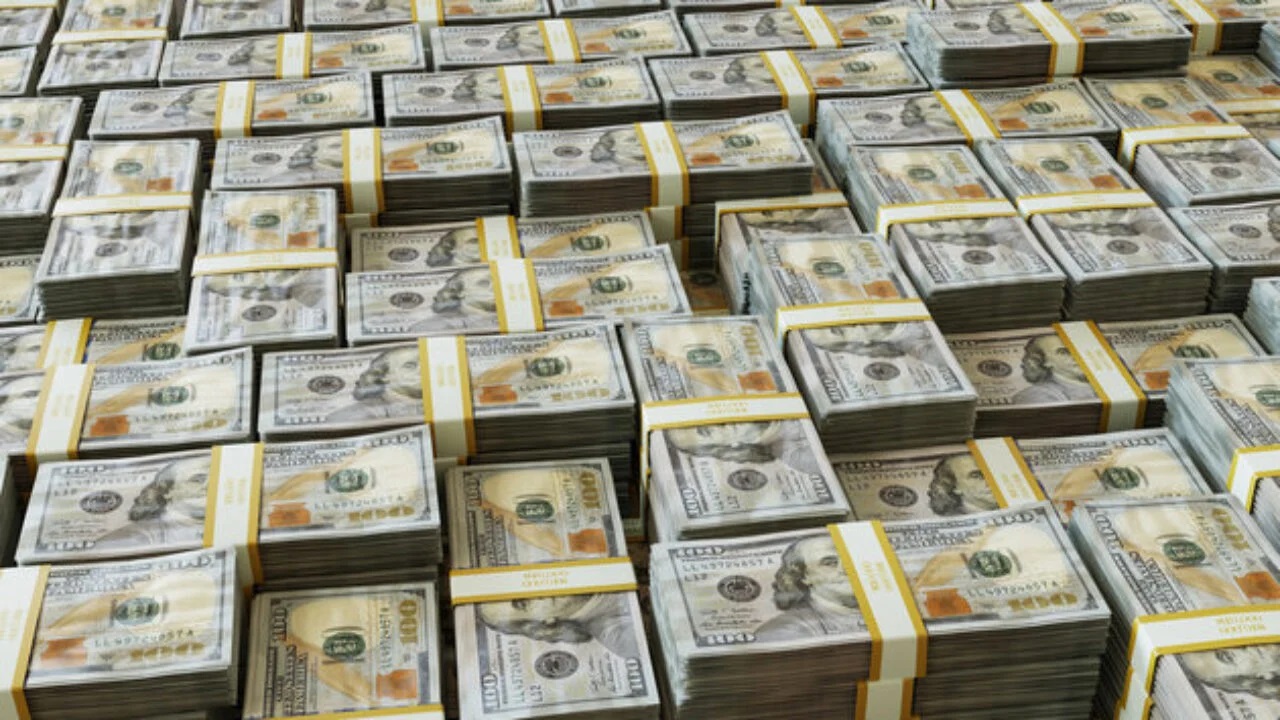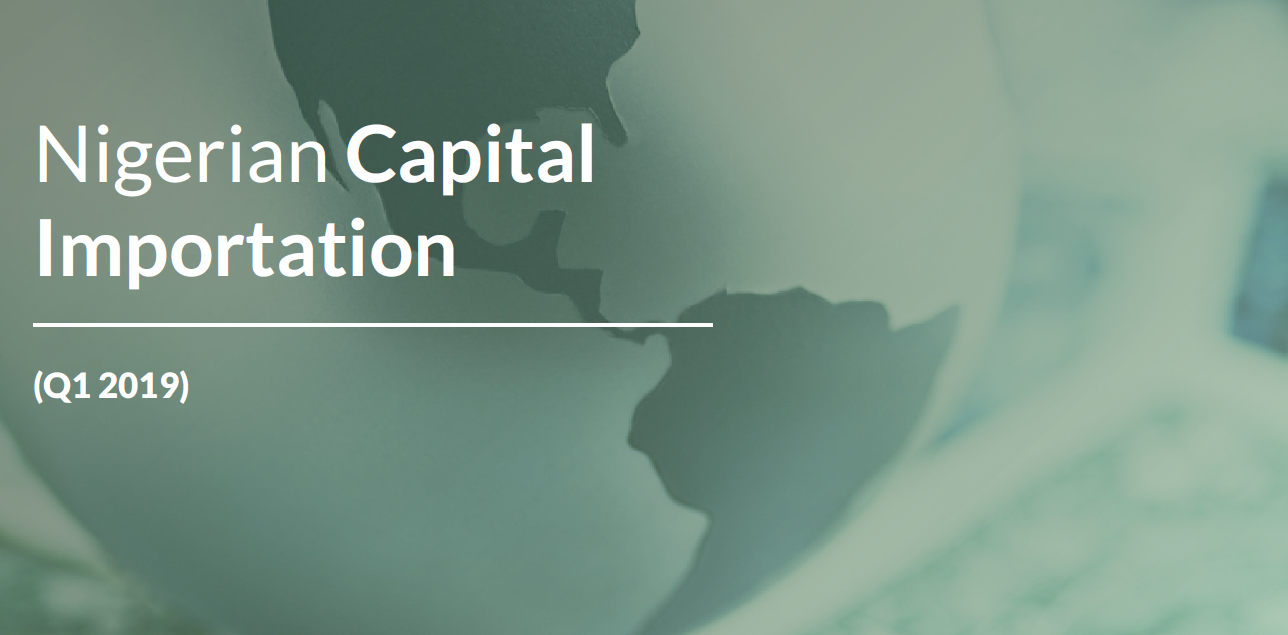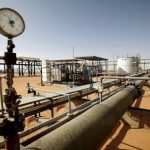Economy
Abuja, Lagos, Abia Contribute 99% to Nigeria’s $5.5b Capital Importation in Q2
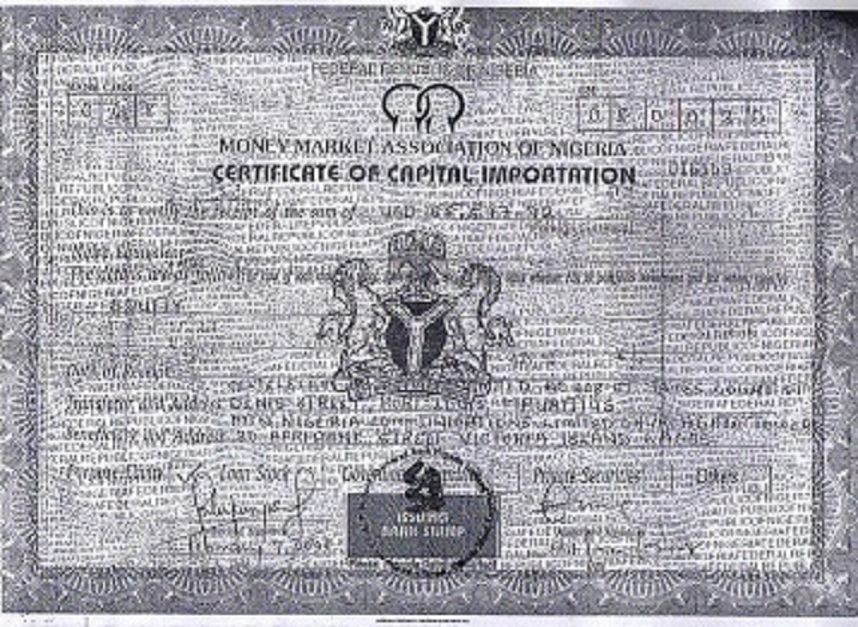
By Modupe Gbadeyanka
Last week, the National Bureau of Statistics (NBS) revealed in a report that the total value of capital importation into Nigeria stood at $5.5 billion in the second quarter of 2018.
According to the report, this was a decrease of 12.53 percent compared with Q1 2018, but a 207.62 percent increase compared with the second quarter of 2017.
It was disclosed that the decline recorded in the second quarter was as a result of a decline in Portfolio and Other Investments, which declined by 9.76 percent and 24.07 percent respectively.
The largest amount of capital importation by type was received through Portfolio investment, which accounted for 74.7 percent ($4.1 billion) of total capital importation, followed by Other Investment, which accounted for 20.5 percent ($1.1 billion) of total capital, and then Foreign Direct Investment FDI, which accounted for 4.7 percent ($261.4 million) of total capital imported in the second quarter.
However, an analysis of the report by Business Post showed that out of the $5.5 billion of the nation’s capital importation for the period under review, Abuja, Lagos and Abia States contributed 99.28 percent, while the remaining 34 states of the federation added a meagre 0.72 percent to the total value.
According to the stats office, the Federal Capital Territory (FCT) Abuja, at $2.6 billion, maintained its lead among recipients of capital import in the second quarter of 2018 after surpassing Lagos in the fourth quarter of 2017.
This represented 46.21 percent of the total capital importation into Nigeria in the quarter under review.
Abuja was followed by Lagos, which received the second largest amount of capital inflow of $1.7 billion or 30.08 percent of the total.
When compared with the preceding quarter, however, the capital inflow into Abuja and Lagos, declined by 28.13 percent and 37.80 percent respectively.
Furthermore, Abia State received $1.3 billion, accounting for 22.99 percent of the total capital importation in the quarter.
In all, Abuja, Lagos, and Abia together represented more than 99 percent of the total capital import in the second quarter.
The NBS said in its report that foreign capital investment in Akwa Ibom and Ogun States recorded $16.10 million and $12.74 million respectively, a decline of 63.09 percent and 48.05 percent, over the previous quarter.
Enugu State, which only had marginal foreign inflow previously, recorded $1.31 million in the second quarter and became the eighth top destination in Nigeria to attract foreign capital investment.
Economy
Customs Street Depletes by N22bn as Investors Liquidate Financial, Energy Stocks

By Dipo Olowookere
The first trading session of this week at Customs Street ended with a marginal 0.03 per cent loss on Monday following profit-taking in financial and energy sectors.
The counters closed lower during the session as investors re-caliberated their portfolios due to the instability in the global financial markets.
The All-Share Index (ASI) of the Nigerian Exchange (NGX) Limited was down yesterday by 33.72 points to 104,529.62 points from 104,563.34 points and the market capitalisation depleted by N22 billion to N65.685 trillion from N65.707 trillion.
Business Post reports that the banking index crumbled by 1.99 per cent, the insurance sector depreciated by 0.36 per cent, and the energy counter lost 0.19 per cent, while the consumer goods space improved by 0.08 per cent, with the industrial goods and commodity indices closing flat.
It was observed that despite the disappointing outcome, the market breadth index was positive after the bourse ended with 28 price gainers and 24 price losers, representing a strong investor sentiment.
International Energy Insurance lost 9.76 per cent to trade at N1.48, Consolidated Hallmark shed 8.33 per cent to N2.75, Japaul went down by 7.46 per cent to N1.86, Chams dropped 6.98 per cent to N2.00, and Neimeth eased by 6.94 per cent to N2.68.
Conversely, Abbey Mortgage Bank rose by 9.95 per cent to N6.74, UPDC gained 9.82 per cent to sell for N3.13, Guinea Insurance increased by 9.52 per cent to 69 Kobo, VFD Group jumped by 9.46 per cent to N96.00, and Sovereign Trust Insurance soared by 9.41 per cent to 93 Kobo.
Yesterday, a total of 428.2 million shares worth N10.5 billion exchanged hands in 14,583 deals versus the 380.0 million shares worth N10.1 billion traded in 10,791 deals last Friday, implying a rise in the trading volume, value, and number of deals by 12.68 per cent, 3.96 per cent and 35.14 per cent, respectively.
The activity chart was topped by Access Holdings with 56.0 million equities sold for N1.2 billion, Zenith Bank traded 55.4 million stocks valued at N2.8 billion, Fidelity Bank transacted 39.0 million shares worth N725.9 million, UBA exchanged 33.2 million equities valued at N1.0 billion, and GTCO traded 31.0 million stocks for N2.1 billion.
Economy
Oil Market Rises on Tariff Exemptions, Boost in China’s Crude Imports

By Adedapo Adesanya
The oil market was slightly up on Monday on the back of exemptions for some electronics from US tariffs and data showing a sharp rebound in China’s crude imports in March.
During the trading session, Brent crude futures improved by 12 cents or 0.2 per cent to $64.88 per barrel and the US West Texas Intermediate (WTI) crude futures grew by 3 cents to trade at $61.53 a barrel.
The President of the United States, Mr Donald Trump, last Friday granted exclusions from steep tariffs on smartphones, computers, and some other electronic goods imported largely from China.
It was the latest in a series of policy announcements that imposed tariffs and then walked them back, spurring uncertainty for investors and businesses.
President Trump later said on Sunday he would announce the tariff rate on imported semiconductors in the coming days.
For the Chinese imports, the exclusion of the tech products applies only to President Trump’s reciprocal tariffs, which climbed to 125 per cent this week as the prior 20 per cent duties on all Chinese imports that he said were related to the US fentanyl crisis remain in place.
China increased its tariffs on US imports to 125 per cent last Friday, hitting back against the American president’s decision to further raise duties on Chinese goods and increasing the stakes in a trade war that threatens to upend global supply chains.
These developments raise concerns that the trade war could weaken global economic growth and dent fuel demand.
China’s crude oil imports in March rebounded sharply from the previous two months and were up nearly 5 per cent from a year earlier boosted by Iranian oil and a rebound in Russian deliveries.
The Organisation of the Petroleum Exporting Countries (OPEC) said in a monthly report on Monday that global oil demand will rise by 1.3 million barrels per day in 2025, down by 150,000 barrels per day from last month’s forecast, citing trade tariffs among the reasons.
Top market analysts like Goldman Sachs and UBS have also cut their forecast.
Goldman Sachs expects Brent to average $63 and WTI to average $59 for the remainder of 2025, with Brent averaging $58 and WTI $55 in 2026 while UBS reduced its Brent forecasts by $12 a barrel to $68.
The US could stop Iranian oil exports as part of President Trump’s plan to pressure Iran over its nuclear programme.
However, Iran and the US held talks in Oman on Saturday and agreed to reconvene next week.
Economy
Nigeria’s Oil Production Drops to 1.40mb/d in March
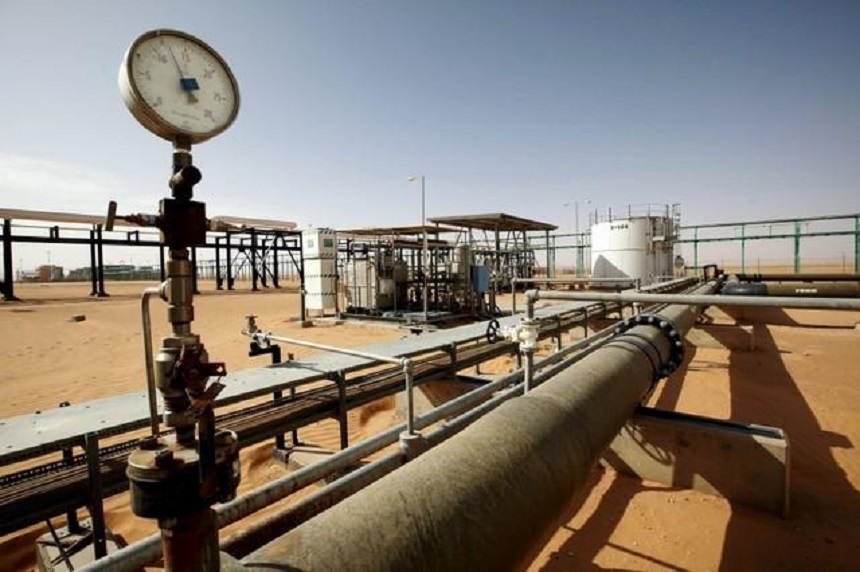
By Adedapo Adesanya
Nigeria’s oil output decreased by 4.1 per cent to 1.40 million barrels per day in March from 1.46 million bpd in the previous month, according to the Organisation of the Petroleum Exporting Countries (OPEC).
This drop means Nigeria has now produced below its OPEC target for the second consecutive month and far below its 2.06 million targets contained in the 2025 national budget.
This decline could be attributed to attacks on pipelines in Rivers State that led to the declaration of state of emergency and the suspension of democracy in the oil-rich state by President Bola Tinubu.
Last month, Mr Tinubu announced the suspension of Governor Siminilayi Fubara and the State House of Assembly over political crisis in the state. This occurred after an oil facility in the state was attacked. He then appointed a retired military officer, Mr Ibokette Ibas as the sole administrator of Rivers State.
Despite the decline, Nigeria remains the largest oil producer in Africa, surpassing Algeria and Congo, which produce 909,000 barrels per day and 263,000 barrels per day, respectively.
However, according to data sourced from secondary sources, OPEC said Nigeria produced 1.51 million barrels per day in March as against 1.54 million barrels per day in February.
OPEC’s report also showed that crude production by the wider OPEC+ fell in March by 37,000 barrels per day to 41.02 million barrels per day due in part to reductions by Nigeria and Iraq.
“Total DoC crude oil production averaged 41.02 mb/d in March 2025, which is 37 tb/d lower, m-o-m,” OPEC said.
On April 12, the Nigerian Upstream Petroleum Regulatory Commission (NUPRC) said the country’s oil production decreased to 1,400,783 barrels per day in March.
Although oil output dropped in March, NUPRC said the average crude oil production is 93 per cent of the 1.5 million barrels per day quota set for Nigeria by OPEC.
NUPRC adds condensates to its estimates, which are exempted by OPEC in its calculations.
On April 4, the OPEC and its allies decided to increase oil production by 411,000 barrels per day in May — amid declining oil prices.
OPEC also cut its 2025 global oil demand growth forecast on Monday for the first time since December, citing the impact of data received for the first quarter and trade tariffs announced by the United States.
OPEC forecasts that world oil demand would rise by 1.30 million barrels per day in 2025 and by 1.28 million barrels per day in 2026. Both forecasts are down 150,000 barrels per day from last month’s figures.
US President Donald Trump’s trade tariffs as well as a plan for higher output by OPEC+ have put downward pressure on oil prices this month and raised concern about economic growth.
In its monthly report report, OPEC lowered its world economic growth forecast this year to 3.0 per cent from 3.1 per cent and reduced next year’s to 3.1 per cent from 3.2 per cent.
Last month, OPEC said trade concerns would contribute to volatility but had kept forecasts steady, saying the global economy would adjust. However, that appears to have changed with recent developments.
-

 Feature/OPED5 years ago
Feature/OPED5 years agoDavos was Different this year
-
Travel/Tourism9 years ago
Lagos Seals Western Lodge Hotel In Ikorodu
-

 Showbiz2 years ago
Showbiz2 years agoEstranged Lover Releases Videos of Empress Njamah Bathing
-

 Banking7 years ago
Banking7 years agoSort Codes of GTBank Branches in Nigeria
-

 Economy2 years ago
Economy2 years agoSubsidy Removal: CNG at N130 Per Litre Cheaper Than Petrol—IPMAN
-

 Banking2 years ago
Banking2 years agoFirst Bank Announces Planned Downtime
-

 Sports2 years ago
Sports2 years agoHighest Paid Nigerian Footballer – How Much Do Nigerian Footballers Earn
-

 Technology4 years ago
Technology4 years agoHow To Link Your MTN, Airtel, Glo, 9mobile Lines to NIN



